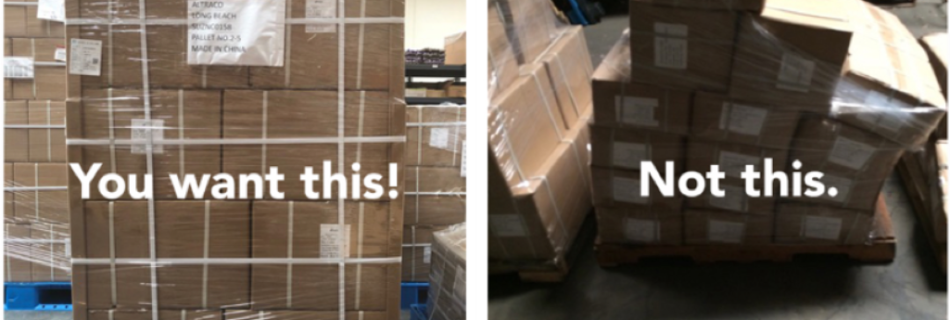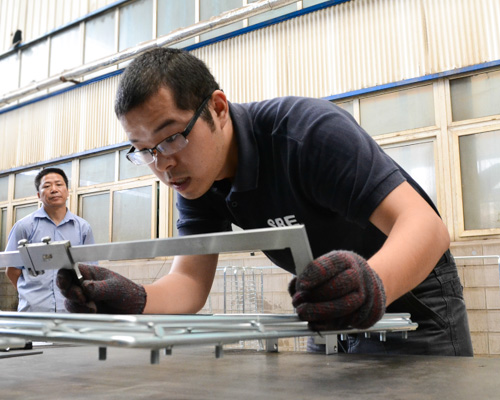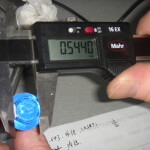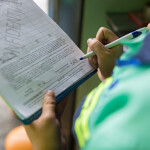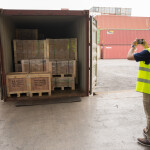29
Sep 2020
Quality Inspections during Travel Restrictions ( 3 out of 4)
According to the International Organization for Standardization (ISO), quality control is part of quality management focused on fulfilling quality requirements. Quality Management coordinates activities to direct and control an organization with regard to quality.
In our last article, we talked about the relevance of international sales contracts, and the way in which they establish the commitments acquired in any commercial transaction. We detailed some of the key elements that should be included, such as agreed prices, Incoterm, delivery times and Minimum Manufacturing Requirements (MMR), among other variables.
Once the buyer has documented and clearly established the MMRs, standards, tolerances, and acceptance and rejection criteria in commercial contracts, the next step is to watch and monitor that these standards are met and respected before, during and after the manufacturing process. Monitoring and surveillance activities to ensure compliance with the points described above are described as quality control practices. Therefore, quality control in manufacturing is a tool that helps buyers to ensure that their products comply with the expected quality standards in the agreed manufacturing times.
Quality inspections serve for the following purposes
- Improve quality by taking immediate corrective actions with your supplier’s.
- Reduce risks of supply chain and planning aspects.
- Verify your supplier is well prepared for production.
- Evaluate manufacturer’s ability to meet adapt and prevent.
- Forecast with more accuracy production schedule and delivery milestones.
- Identify Issues on the first pieces to launch immediate corrective actions.
- Track the speed of the production process.
- Avoid business losses right in the production line.
- Identify issues and launch immediate corrective actions.
- Improve your supplier’s accountability.
- Monitor your supplier’s performance.
- Avoid business losses due to costly goods returns or rework.
- Protect your brand and reputation.
Inspection Planning, Coordination & Performance
Now, someone you can trust, objective and independent should perform the on-site inspection right?
Currently, having inspectors moving from one country to another is almost impossible and very expensive, therefore it is important to have on-hand a trust worthy third party inspection agency to help you planning, coordinating and performing the quality control mission according to your standards.
What are the recommendations for an effective QC program?
Onsite Quality control comprises different inspections checkpoints along the manufacturing process and according to your industry needs.
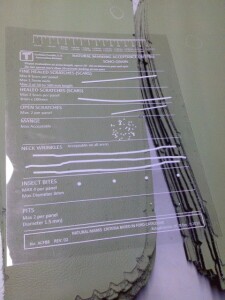 1.- Pre-Production Inspection (PPi). Before production starts, use this inspection to confirm the appropriate handling of incoming materials, same as proper quality and process control measures, are critical to achieve an efficient manufacturing process, quality products and on-time deliveries.
1.- Pre-Production Inspection (PPi). Before production starts, use this inspection to confirm the appropriate handling of incoming materials, same as proper quality and process control measures, are critical to achieve an efficient manufacturing process, quality products and on-time deliveries.
2.- First Run Inspection (FRI). In most of cases, defects and mistakes happen during the first stages of the production process or the first manufactured units. When those issues can be detected and corrected on-time, delivery times don’t get affected.
3.- On Process Inspection (OPI). You may want to monitor your order status, inspect intermediate sub-assemblies or semi-finished products before production is about to be finished. Save time and money by taking decisions on-time!
4.- Final Production Inspection (FPI). It is critical to check you products’ quality and compliance to requirements before they leave supplier’s facilities. This may be the last chance to correct issues without affecting your delivery time. So, take action for your factory inspection and improve the quality!
In summary, quality control along with quality inspections helps you to identify any issues with your products, provides information to the decision makers, and empower them to solve any problem at the right moment.
Once we have our goods with the expected quality at the agreed times, it is moment to ship them to your country, therefore a pre-shipment inspection and a container loading supervision are recommended to prevent penalties from your customs´ authorities and losses for damaged, incomplete, changed or missing goods.
We will talk about shipment´s inspections in the next blog in two weeks.

